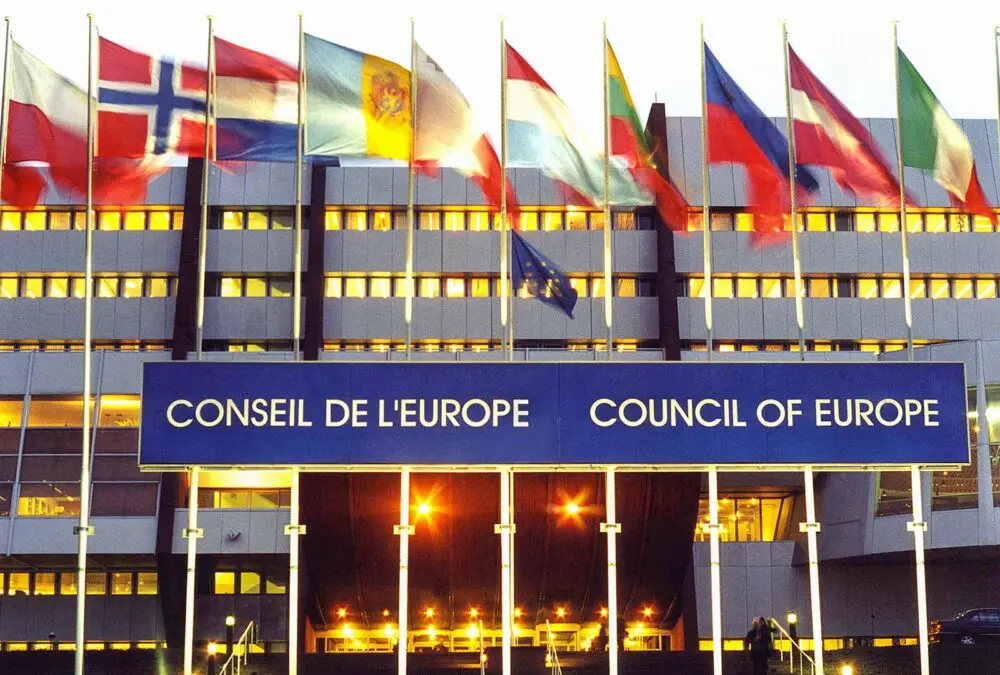The decision-making body of the Council has started its review process of a controversial drafted text that aim at protecting human rights and dignity of persons who are subjected to coercive measures in psychiatry. The text however has been the subject of widespread and consistent criticism since the work on it started several years ago. The United Nations human rights mechanism has pointed to the legal incompatibility with an existing UN human rights convention, that outlaw the use of these discriminatory and potentially abusive and humiliating practices in psychiatry. UN human rights experts has expressed a shock that the Council of Europe with the work on this new legal instrument that allows the use of these practices under certain conditions might “reverse all positive developments in Europe”. This criticism has been strengthened by voices within the Council of Europe itself, international disability and mental health groups and many others.
Mr Mårten Ehnberg, the Swedish member of the decision-making body of the Council of Europe, called the Committee of Ministers, told the European Times: “The views regarding the compatibility of the draft with the UN Convention on the Rights of Persons with Disabilities (CRPD) are of course of great importance.”
“CRPD is the most comprehensive instrument protecting the rights of persons with disabilities. It is also the starting point for the Swedish disability policy,” he added.
He stressed that Sweden is a strong supporter and advocate for the full enjoyment of human rights by persons with disabilities, including the right to effectively and fully participate in political and public life on an equal basis with others.
Discrimination on the grounds of disability should not occur
Mr Mårten Ehnberg noted that “Discrimination on the grounds of disability should not occur anywhere in society. Health care must be offered to everyone based on need and on equal terms. Care must be provided with respect of the individual patient’s needs. This is of course also applicable regarding psychiatric care.”
With this he puts his finger on the sore spot. The UN Committee on the Rights of Persons with Disabilities – the UN Committee that monitors the implementation of the CRPD – during the first part of the drafting process of this possible new legal text of the Council of Europe issued a written statement to the Council of Europe. The Committee stated that: “The Committee would like to highlight that involuntary placement or institutionalization of all persons with disabilities, and particularly of persons with intellectual or psychosocial disabilities, including persons with ‘‘mental disorders’’, is outlawed in international law by virtue of article 14 of the Convention, and constitutes arbitrary and discriminatory deprivation of liberty of persons with disabilities as it is carried out on the basis of actual or perceived impairment.”
To make any doubts on the question whether this concern all coercive psychiatric treatment, the UN Committee added, “The Committee would like to recall that involuntary institutionalization and involuntary treatment, which are grounded on therapeutic or medical necessity, do not constitute measures for protecting the human rights of persons with disabilities, but they are an infringement of persons with disabilities’ rights to liberty and security and their right to physical and mental integrity.”
Parliamentary assembly opposed
The UN does not stand alone. Mr Mårten Ehnberg told the European Times that “The Council of Europe’s work with the current drafted text (additional protocol) has previously been opposed by, inter alia, the Parliament of the Council of Europe (PACE), which on two occasions has recommended the Committee of Ministers to withdraw the proposal to draw up this protocol, on the basis that such an instrument, according to PACE, would be incompatible with the member states’ human rights obligations.”
Mr Mårten Ehnberg to this noted, that the Council of Europe’s Committee of Ministers in turn had stated that “the utmost should be done to promote alternatives to involuntary measures but that such measures nevertheless, subject to strict protective conditions, may be justified in exceptional situations where there is a risk of serious damage to the health of the person concerned or to others.”
With this he quoted a statement that had been formulated in 2011, and has been used since by those who speak in favour of the drafted legal text.
It was originally formulated as part of the initial consideration whether a Council of Europe text regulating the use of coercive measures in psychiatry would be necessary or not.
During this early phase of the deliberation a Statement on the United Nations Convention on the Rights of Persons with Disabilities was drafted by the Council of Europe Committee on Bioethics. While seemingly concerning the CRPD the statement however factually only considers the Committee’s own Convention, and its reference work – the European Convention on Human Rights, referring to them as “international texts”.
The statement has been noted as rather deceptive. It lays out that the Council of Europe Committee on Bioethics considered the United Nations Convention on the rights of persons with disabilities, particularly whether articles 14, 15 and 17 were compatible with “the possibility to subject under certain conditions a person who has a mental disorder of a serious nature to involuntary placement or involuntary treatment, as foreseen in other national and international texts.” The statement then confirms this.
Comparative text on the key point in the statement of the Committee on Bioethics however show it in reality does not consider the CRPD’s text or spirit, but only text straight out of the Committee’s own convention:
- The Council of Europe Committee’s Statement on the Convention of the Rights of Persons with Disabilities: “Involuntary treatment or placement may only be justified, in connection with a mental disorder of a serious nature, if from the absence of treatment or placement serious harm is likely to result to the person’s health or to a third party.”
- Convention on Human Rights and Biomedicine, Article 7: “Subject to protective conditions prescribed by law, including supervisory, control and appeal procedures, a person who has a mental disorder of a serious nature may be subjected, without his or her consent, to an intervention aimed at treating his or her mental disorder only where, without such treatment, serious harm is likely to result to his or her health.”
Further preparation of the drafted text
Mr Mårten Ehnberg, said that during the continued preparations, Sweden will continue to monitor that the necessary protective principles are upheld.
He stressed that, “It is not acceptable if compulsory care is used in a way that means that persons with disabilities, including psychosocial disabilities, are discriminated against and treated in an unacceptable way.”
He added that the Swedish Government is highly committed, both nationally and internationally, to further improve the enjoyment of human rights by persons with mental ill-health and disabilities, including psychosocial disabilities, as well as to promote the development of voluntary, community-based support and services.
He finished off noting, that the Swedish Government’s work regarding the rights of persons with disabilities will continue unabated.
In Finland the government also follow the process closely. Ms Krista Oinonen, Director of the Unit for Human Rights Courts and Conventions, Ministry for Foreign Affairs told the European Times, that: “Throughout the drafting process, Finland has also sought a constructive dialogue with civil society actors, and the Government is keeping Parliament duly informed. The Government has lately organised an extensive round of consultations among a large group of relevant authorities, CSOs and human rights actors.”
Ms Krista Oinonen could not give a conclusive viewpoint on the drafted possible legal text, as in Finland, the discussion about the draft text is still ongoing.








